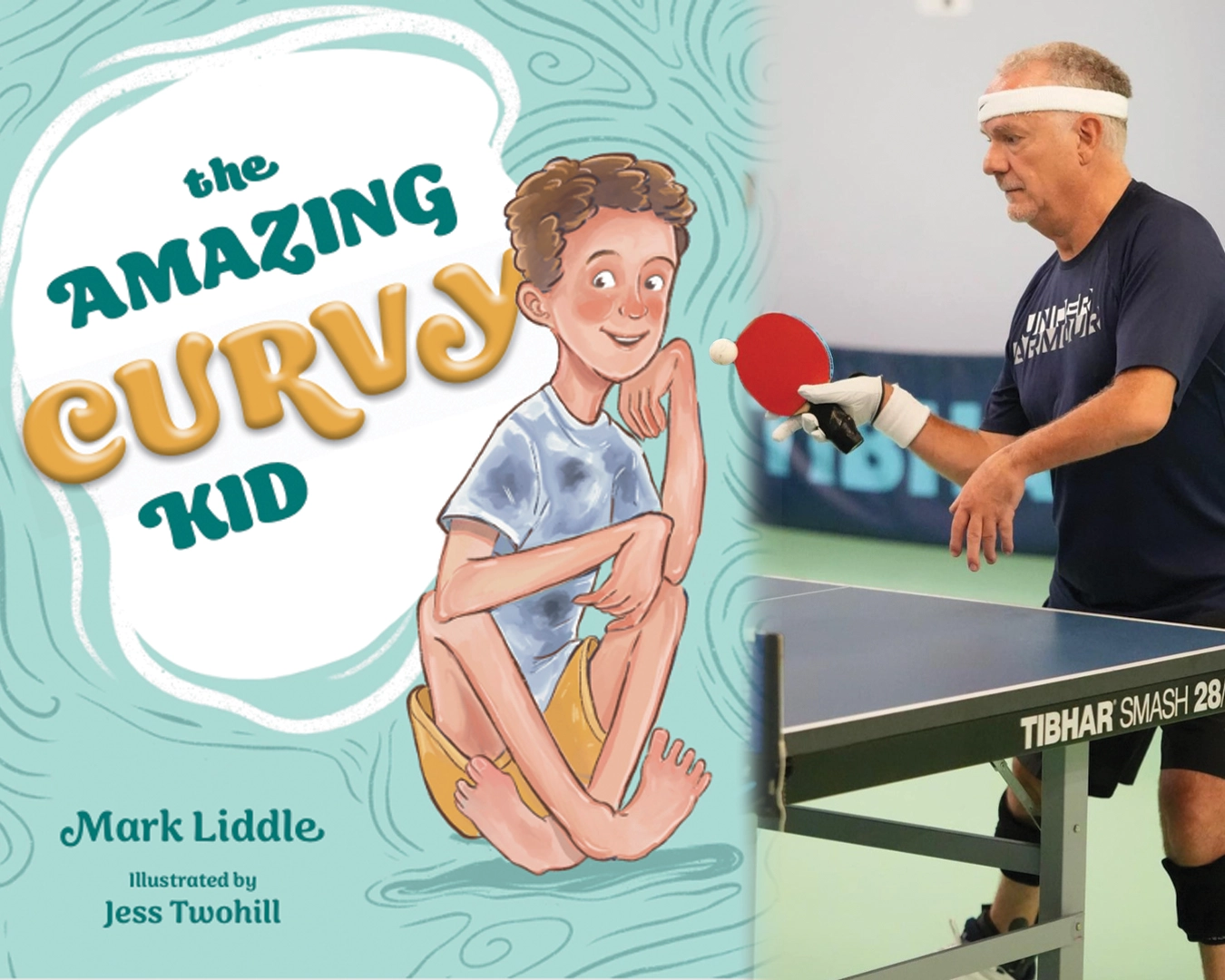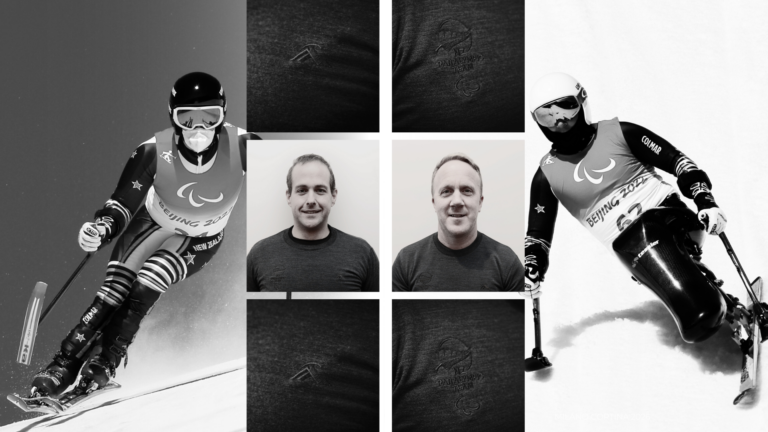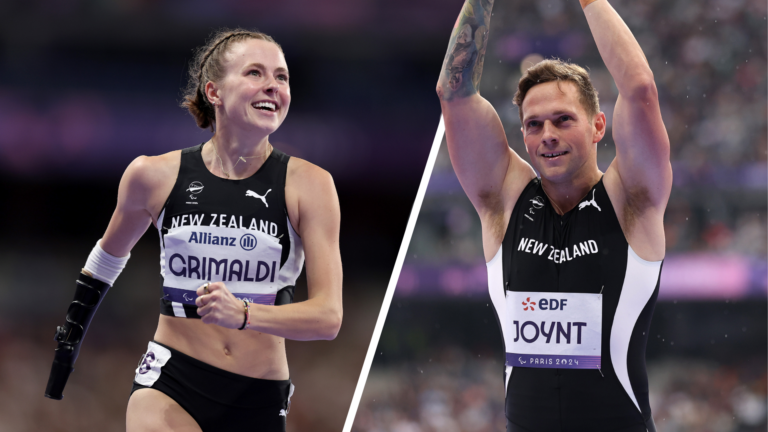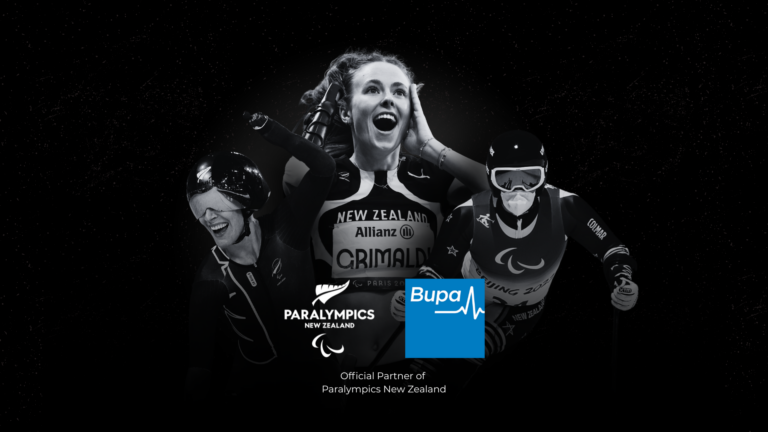A Para table tennis player with ambitions to play in the Oceania Para Table Tennis Championships in Auckland later this year has written a children’s book on his experiences of disability.
Mark Liddle, who was born with arthrogryposis, has recently published the book entitled The Amazing Curvy Kid which he insists can not only act as an inspiration to other disabled people, but as a learning tool for the non-disabled.
“I’m very proud of writing the book which I hope can help start a conversation,” adds Mark. “Hopefully it will give those without a disability a greater understanding too.”
Born on a farm in Pukekohe, Mark’s mum and dad raised him to be independent. Despite his disability, which causes a curving of the body in two or more joints, he was expected to carry out a range of chores on the farm and he is “super grateful” for the way he was raised.
A sporty kid, he played football, rugby and golf “whatever sport he could try” and was also introduced to table tennis.
“I played a lot of table tennis at home and just loved it,” explains Mark, who is fitted with a sophisticated Exoskeleton (Exosym) device on his lower leg and feet which helps redistribute the weight from his ankle to his feet and knee to alleviate pain.
After leaving school Mark left table tennis behind him as he focused on his role as a medical salesman and raising two children. He did, however, continue to remain casually involved with the sport and in 2023 he was encouraged by Table Tennis NZ Development Manager Jessica MacAskill to attend a Para table tennis development weekend.
Loving the experience, he has since fully engaged in the sport. Stepping up his practice to around ten to 12 hours a week out of the Waikato Table Tennis Association facility in Hamilton – he is fully focused on improving his game.

His disability makes it hard to grip the table tennis bat, but Mark plays with a glove made of Velcro to enable the bat to stay attached to his hand.
“The group I train with are hugely competitive, but I like the competition,” he says. “I love playing and being in the moment, there’s a lot to the game, not only in the body but also the mind. If you are not on your game, people will wipe the floor with you!”
Coached by Para Sport Collective Intake one member Mark Page, whom Mark describes as “hugely influential”, he has helped rebuild his game. Believing he has improved “across the board” with his timing, serves and strategy, he says he is now capable of defeating non-disabled players who previously he had not beaten.
A recent participant in the Paralympics New Zealand (PNZ) Table Tennis pilot Serve, Spin, Smash, the 60-year-old said: “It is great to see the disabled community getting the opportunity to play Para sport because it really makes a huge difference,” he explains. “I know Para table tennis has changed my life and given me a new hobby. In fact, it has become much more than a hobby and hopefully I can qualify for the Oceania Table Tennis Championships in Auckland in September.”
Besides his Para table tennis ambitions, during a Covid lockdown, the Chair of the Arthrogryposis Group New Zealand first mooted the idea of writing a book about growing up with a disability.
However, it was not until around three years ago he finally acted on his thoughts and put pen to paper in an effort to change the narrative around disability. After an illustrator was found, the The Amazing Curvy Kid – a heartwarming story which celebrates kindness, compassion and the courage to stand out – was self-published. Mark is very grateful to receive an early career development grant from Creative NZ, to help publish his book.
“The idea of the book is to focus not on wishing you were something else but looking at what you might be good at. It is based on my story and the first line in the book is ‘Mark was born with curved hands and curved feet’ – and that’s the reference to the disability. It is aimed at five to eight-year-olds which is an important time of development.”
Hoping The Amazing Curvy Kid is the first of a Trilogy of Books, Mark adds: “When I first received the book, I got quite emotional. I’m very pleased and proud. I want it to be a resource for parents, but also for the disabled child to say you can do what you want to achieve, whatever path you take.”



























